The recent Chinese Communist party congress was planned to highlight the crowning of the new emperor Xi Jinping. Despite various rumours, including that Xi had been arrested a few weeks before the event, there was no serious opponent for leadership of the party. Xi’s relentless anti-corruption drive had despatched many potential rivals, including some of those charged with implementing his program. Xi was duly named as General Secretary for a third term, accompanied by obsequious applause of the assembled delegates. Subsequently, the hand-picked members of his central standing committee marched out for the delegates and the media. But overshadowing these scenes of triumph for Xi was an otherwise marginal incident which captured global attention.
The incident involved the forceable removal of Xi’s predecessor Hu Jintao from the congress hall. Extended film of the event clearly depicts Hu, who was seated next to Xi, referring to a page in his papers on the desk. The retiring Congress chairman, Li Zhanshu, an ally of Xi, endeavours to take the page from Hu before handing it back when two attendants summoned by Xi jostled the previous Chinese leader from the room, although not before he tries to sit down again. ‘Hu was feeling unwell’ was the response of the State media – not always purveyors of the truth. If this was the innocent explanation, why has footage and mention of the incident been censored in China?
Theories abound about the incident. Hu, shown not applauding Xi earlier in the proceedings, headed the Youth League faction opposed to Xi. Although Hu is a descendant of a Ming dynasty general Hu Zongxian, he came from a humble family. His mother died when he was seven and his father, who owned a small tea trading business, was denounced during the Cultural Revolution, leaving him to be raised by an aunt. Unlike many of the princelings such as Xi, the children and descendants of the original leaders of the CCP who believe they are the rightful heirs of Mao, Hu had laboured his way through the party’s labyrinth.
Some suggest that Xi had betrayed Hu on an agreement about the composition of the politburo, but the truth may never be known. If Hu was unwell as claimed, the stony reaction from the poker-faced Xi and the other politburo members was devoid of humanity. If the very public action was a deliberate insult, as suspected by many observers, it was a hubristic exercise by the insecure Xi to shame and humiliate the former leader, as a lesson to others. Neither alternative reflects well on the true nature of the totalitarian regime.
Whatever the reason, the expulsion of Hu from the congress floor reflected Xi’s purge of the politburo of all but his most trusted loyalists. The central standing committee now comprises Xi apparatchiks. The country’s next premier Li Qiang is a Xi protégé, who as party secretary of Shanghai was responsible for the city’s lockdowns. Zhao Leji was head of the Central Commission for Discipline Inspection, the anti-corruption body, previously responsible for personnel appointments. Wang Huning is Xi’s ideas man, the probable author of most of Xi’s policies. Ca Qi was Beijing party secretary and also a Xi loyalist. Ding Xuexiang was Xi’s private secretary before becoming his chief-of-staff. Li Xi, formerly the Guandong party secretary is expected to become head of the new anti-corruption body which has purged Xi’s rivals. The only woman on the 24-person Politburo has not been replaced and the entire body is comprised of Han Chinese, a stark contrast to the CCP’s claim to represent all ethnic groups in the country.
Xi has made no secret of his central role in selecting his handpicked politburo. A recent article on a Chinese government website by writers for the Xinhua News Agency reported how ‘the Party Central Committee with Comrade Xi Jinping at the core planned the nomination of candidates for the new central leadership.’ It reported that ‘the interview, investigation and candidate preparation work were carried out under the direct leadership of General Secretary Xi Jinping’ according to a set of principles including adherence to ‘the core position of the party’s leadership, uphold(ing) the authority and centralized and unified leadership of the party central committee’ and ‘the principle that the party manages cadres (and) implement(s) democratic centralism’. It quoted Xi as stating that ‘people cannot simply be chosen by votes’ and outlined how he was the central player in the selection of the officials. Critical to selection was their support for the ‘two establishments’, namely, Xi at the core of the party, and the guiding position of Xi thought (on almost everything). Hence all things begin and end with Xi.
A notable absence from the central committee is Li Keqiang, the economist who has warned about China’s economic challenges, and Wang Yang, another economic reformer. The financial reaction has been dramatic. The nation’s economic boom is over. ‘China used to be a one-way street of happiness and rising prosperity, but that’s now over,’ said Joerg Wuttke, president of the EU chamber of commerce in China. The country’s GDP grew by 3.9 per cent, well short of the 5.5 per cent target, which itself was the lowest for 30 years. The release of the data was delayed until after the national congress. The value of shares in China’s major tech companies nosedived. Luxury property prices in Shanghai have dropped by as much as 40 per cent. Consumer confidence is at its lowest point since first measured in 1996. Major Chinese banks sold US dollars to prop up a weakening yuan.
Is Xi’s hand-chosen standing committee a war cabinet? At the very least, it is focussed on his political goals, which he reminded the congress include the subjugation of Taiwan. US Secretary of State Blinken has warned that conflict over Taiwan could occur earlier than generally expected, with some analysists concerned that Xi could act soon. The US Naval Operations Chief Admiral Gilday said last week that a 2022 or 2023 window of opportunity for China could not be ruled out. Xi also elevated General He Weidong, the former commander of the military’s Eastern Theatre Command to vice chairman of the Central Military Commission. Weidong’s previous command included the region surrounding Taiwan. He will now be one of the two deputies to Xi in running the PLA.
A senior Chinese official said recently that ‘we are closer than ever in history… to realising the complete unification of the motherland.’ While this is part of the ongoing psychological war against Taiwan, Xi’s first possible timeframe is between now and the Taiwanese presidential elections in early 2024. This is despite him saying last week that China was ‘willing to make efforts with the US, respect each other, co-exist peacefully, co-operate for win-win and find the right ways for China and the US to get along in the new era, which benefits both countries as well as the world’.
Got something to add? Join the discussion and comment below.
Get 10 issues for just $10
Subscribe to The Spectator Australia today for the next 10 magazine issues, plus full online access, for just $10.
You might disagree with half of it, but you’ll enjoy reading all of it. Try your first month for free, then just $2 a week for the remainder of your first year.

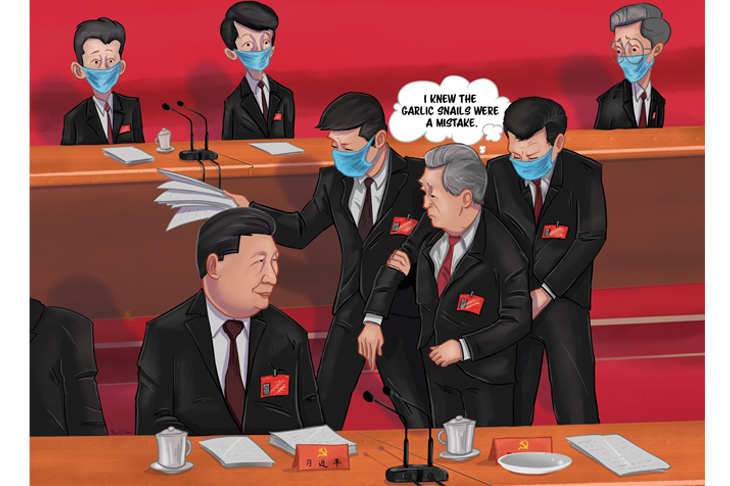
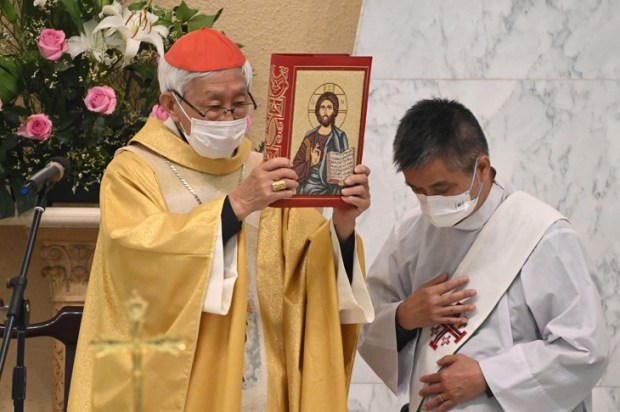
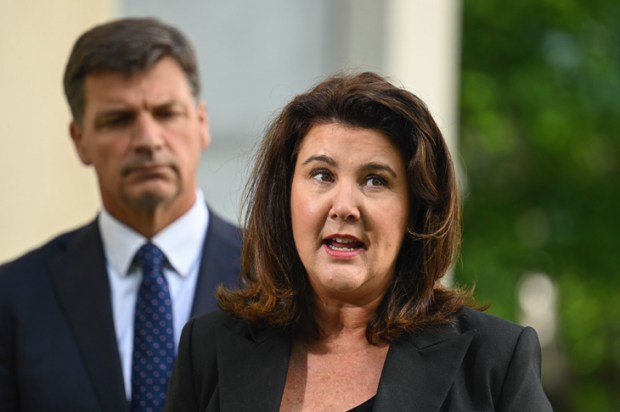
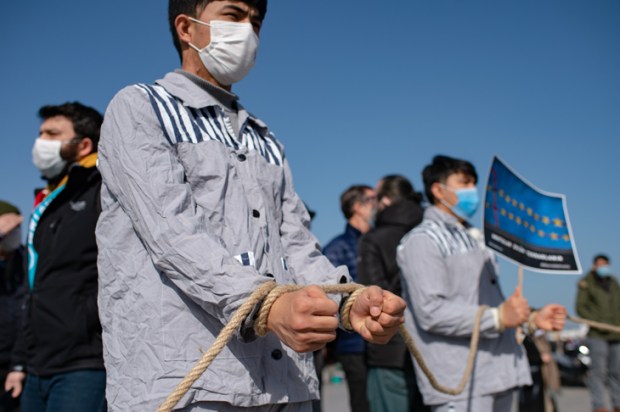
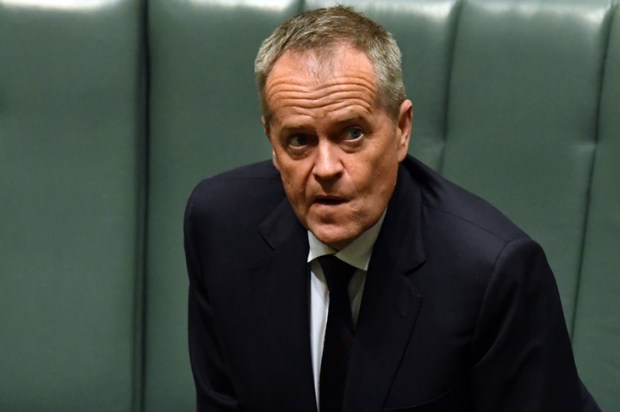








Comments
Don't miss out
Join the conversation with other Spectator Australia readers. Subscribe to leave a comment.
SUBSCRIBEAlready a subscriber? Log in